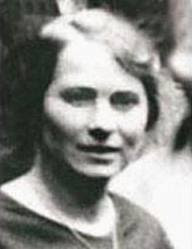In that context, it’s perhaps ironic that one of the examples Freud himself gives of the working of the subconscious, in The Psychopathology of Everyday Life, is that while he often loses bills, he never loses cheques. Rather sets the tone for the therapeutic profession he launched.
That being said, and whatever the shortcomings of the therapy, in every way other than the financial, Freud’s insights into the workings of the mind are invaluable.
Take another example of the subconscious, from the same book. Freud talks about crossing the whole of Vienna on foot and only realising after getting home that he has crossed a great many busy streets and must have stopped at the edge of each to check when it would be safe to cross, but can remember none of it. That’s an illustration that speaks to me: I’ve done the same, admittedly in London rather than in Vienna, and have piloted myself around many obstacles with no conscious thought while I was doing it and therefore no memory afterwards of having done it. And it’s worked a dream, if it's OK to use that word in this context.
The subconscious does habitual things well, like changing gear: easy when you don’t think about it, likely to go wrong if you do.
That’s why the trick in sport is to internalise technique: if you have to think about how you’re using your hands or your feet, you’re likely to get it wrong; when the subconscious handles it for you things go a lot better; so the advice ‘concentrate’, while useful for a beginner, is exactly the opposite of what you should do when you get proficient.
As well as the subconscious, Freud’s other great theoretical construct was the sex drive. Humanity’s hunger to create is never stronger than in the urge to procreate. Sexuality is wrapped up with life itself, which it helps create, in that complex of forces Freud summed up as ‘Eros’, the Greek deity of love.
And yet that principle is not enough. Because in the human psyche, there is an urge to destruction alongside the tendency to create. At first Freud hadn’t allowed for this second principle, now summed up as ‘Thanatos’, the daemon in Greek mythology personifying death.
Even more powerful is the notion that both are intricately linked. The sexual act, though fundamentally creative, also involves destruction: the self is lost, destroyed, as ‘I’ dissolves into ‘we’. Anyone uncertain of the intimate links between sex and self-destruction need only ask Bill Clinton. Or for a more jaundiced and less self-justifying response, perhaps Hillary.
The death principle added a new dimension to psychoanalysis, which saw the dissolution of as the basis for the emergence of something new: that dissociation allows a new becoming and therefore provides a mechanism for development.
And who came up with this powerful and enriching insight? Not Freud himself but a nearly forgotten pioneer of analysis, nearly forgotten perhaps precisely because she was a woman in a world dominated by men: Sabina Spielrein.
 |
| Sabina Spielrein: added the destructive principle to Freud’s theories |
In 1924, she moved back to Russia with her husband and two daughters. She set up a child psychoanalysis clinic in her native Rostov-on-Don and kept it going clandestinely after psychoanalysis was banned in the Soviet Union.
In the 1930s, her brothers and her husband were murdered in Stalin’s purges. Having first suffered in this way at the hands of the Communists, she then fell victim to the Nazis in 1942 when she and her daughters were shot by German occupying forces ridding Rostov of Jews.
After her death, her work sank into obscurity despite its significance. There have been attempts to rehabilitate her reputation, most recently in the film A Dangerous Method covering the time she spent in Zurich. Her role is played, rather well, by Keira Knightley who like Spielrein herself deserves to be taken more seriously in her profession than she often is. It’s facile to write her off as just a pretty face, just because she has a pretty face.
 |
| Keira Knightley: like Spielrein herself deserves a better press |
If that does a little towards restoring her reputation, so much the better. After all, how much more can anyone do than to help us understand ourselves?
2 comments:
a bad actress... a terrible film... not such a pretty face (relative to other beautiful overpaid actors that is)
So... not amongst the most fervent admirers of the actor or the film then? What about Spielrein herself though?
Post a Comment